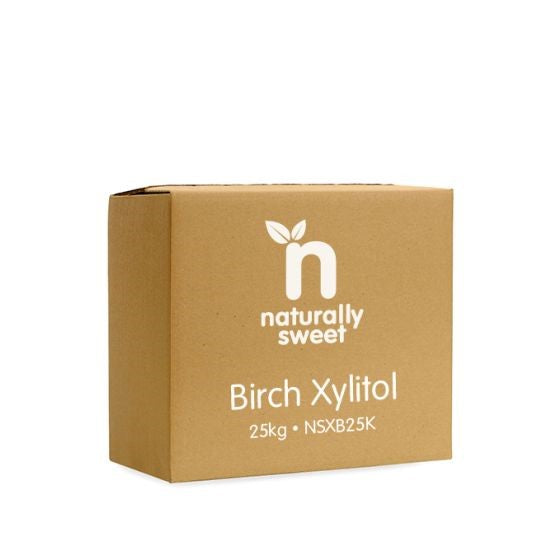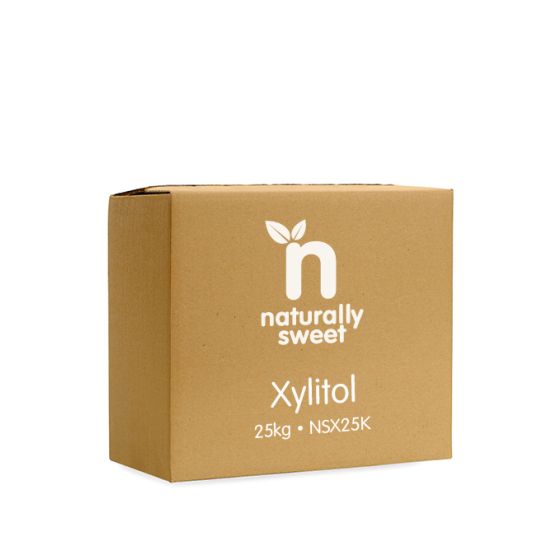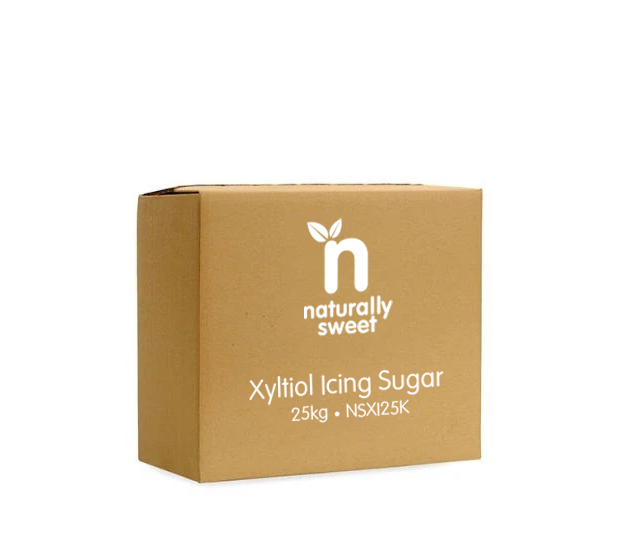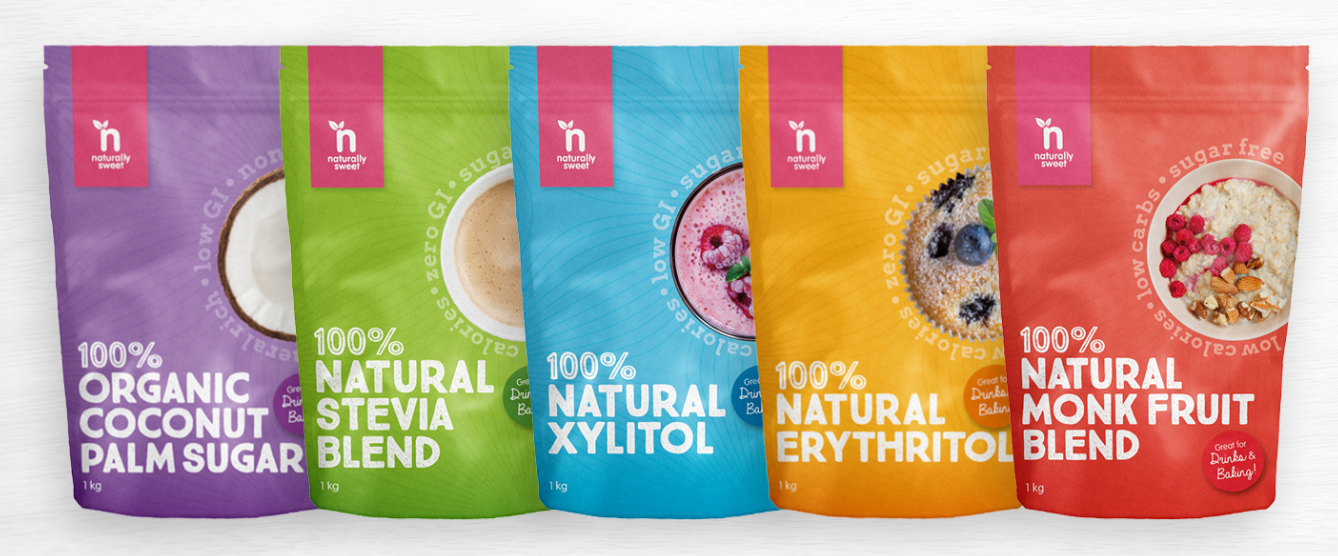Naturally Sweet Bulk Xylitol is a premium, plant-based sugar alternative that tastes like sugar with fewer kilojoules. As a popular sugar substitute and ingredient in various foods and beverages, it is a naturally occurring sugar alcohol found in fruits and hardwoods, as well as vegetables, berries, and mushrooms. Xylitol is also produced in small amounts by the human body during normal metabolism. Xylitol is considered suitable for diabetics due to its minimal impact on blood sugar. It’s an easy 1:1 replacement in many recipes—ideal for anyone reducing sugar without sacrificing flavour, and natural xylitol is considered a healthier choice compared to other sweeteners.
Choose bulk sizes for value and convenience—perfect for families, cafés, manufacturers, and low-sugar kitchens across Australia.
Introduction to Xylitol
Xylitol is a five-carbon sugar alcohol (polyol) that looks and tastes like regular sugar, sharing many similarities in appearance, texture, and sweetness. However, the similarities end when it comes to their effects on health and metabolism, as xylitol offers distinct benefits over sugar. In fact, xylitol has been scientifically recognized for over 120 years and is well-known for its dental and metabolic health benefits.
Origin and Production
While xylitol occurs naturally in small amounts in plants and some fruits, commercial xylitol is typically produced from plant materials rich in xylose (commonly birch or non-GMO corn). Xylitol can be sourced from different countries, including China, Finland, and the USA, with each country offering unique qualities based on their sourcing and production practices. Through a purification and hydrogenation process, xylose is carefully processed and packed to ensure high-purity xylitol crystals, maintaining strict quality and safety standards. The result is a consistent, food-grade sweetener suitable for home cooks and commercial food production.
Sweetness and Uses as a Sugar Substitute
Xylitol matches sugar’s sweetness (use 1:1 in most recipes), making it straightforward to swap in for cooking as a sugar substitute in a variety of recipes:
-
Hot drinks, coffee, iced tea, and smoothies
-
Cakes, muffins, cookies, and slices
-
Custards, puddings, and ice creams
-
Sauces, glazes, and dressings
-
Sugar-free confectionery and chewing gum
Baking notes: Xylitol browns less than sugar and won’t caramelise in the same way. It also doesn’t feed yeast, so it’s not suitable for activating yeast in bread doughs. For best texture in biscuits and cakes, cream well with fats and consider combining with a another sweetener such as erythritol if you prefer a crisper finish.
Health Benefits and Safety
-
Low GI: With a low glycaemic index, xylitol has a reduced effect on blood glucose compared with sugar—popular among people managing sugar intake. Xylitol does not cause spikes in insulin and may help reduce the risk of insulin resistance.
-
Tooth-friendly: Xylitol is widely used in dental products; it does not ferment by mouth bacteria that contribute to tooth decay and it supports saliva flow, helping protect enamel. Harmful bacteria in the mouth are unable to metabolize xylitol, which helps prevent tooth decay.
-
Tummy-friendly use: Like other polyols, large amounts may cause digestive upset. Introduce gradually and enjoy in moderation.
Important: Xylitol is extremely toxic to dogs. Store securely away from pets and seek immediate veterinary help if accidental ingestion occurs.
Storage & Handling
Keep sealed in an airtight container in a cool, dry place. Xylitol is moisture-sensitive; protect from humidity to prevent clumping. If crystals harden, gently loosen with a spoon—sweetness and quality are unaffected.
Shop Bulk Xylitol
Ready to switch? Buy bulk xylitol directly from us for convenience and fast delivery. Explore our range of Bulk Xylitol pack sizes for baking, beverages, and commercial use. Get the best price on bulk xylitol through our store—our competitive price offers great value compared to other options. Stock your pantry—or your production line—with a reliable, great-tasting sugar alternative delivered across Australia. Join our happy customers who love the quality and value of our xylitol!
Frequently Asked Questions (FAQs)
Is xylitol natural?
Yes. Xylitol occurs naturally in small quantities in plants and fruits. Food-grade xylitol is purified from plant sources (commonly birch or non-GMO corn) to create high-purity crystals.
How sweet is xylitol compared to sugar?
Xylitol is about as sweet as table sugar, so you can usually replace sugar 1:1 in drinks and many recipes.
Is xylitol safe to eat?
For most people, yes, when consumed in typical food amounts. As with all polyols, excessive intake may cause digestive upset. Do not give xylitol to dogs—it is highly toxic to them.
Does xylitol raise blood sugar?
Xylitol has a low glycaemic index and a smaller impact on blood glucose than sugar. Individual responses vary, so monitor your intake according to your health needs.
Is xylitol good for teeth?
Yes. Xylitol is tooth-friendly and is commonly used in sugar-free gum and dental products because it is not fermented by cavity-causing bacteria.
Can I bake with xylitol?
Absolutely—for cakes, muffins, slices, and more. Xylitol is a versatile sugar substitute, but note that it browns and caramelises less than sugar and won’t feed yeast, so it isn’t suitable for activating yeast in breads.
Is xylitol keto-friendly?
Many low-carb and keto recipes use xylitol. However, it contains some digestible carbohydrates and calories (about 40% fewer than sugar). The carbohydrate content of xylitol is calculated based on the amount absorbed and converted in the body, with some classified as unavailable carbohydrates that have minimal impact on blood sugar. If you track macros strictly, account for this.
What’s the difference between xylitol and erythritol?
Both are sugar alcohols with low GI. Erythritol has near-zero kilojoules and GI ~0 but is slightly less sweet than sugar (~70%), while xylitol is 1:1 sweet with ~40% fewer calories than sugar and a low (but not zero) GI. Compared to other sweeteners like sorbitol, fructose, and glucose, xylitol offers a better balance of sweetness, lower glycaemic impact, and dental health benefits.
Can people with diabetes use xylitol?
Xylitol’s low GI makes it a common choice for people managing sugar intake. Always follow your health professional’s advice and consider testing your personal response.
How should I store Bulk Xylitol?
Store in a sealed, airtight container in a cool, dry place away from direct sunlight. Proper storage preserves freshness.
 Naturally Sweet Birch Xylitol 25Kg BulkNaturally Sweet Birch Xylitol 25Kg Bulk
Naturally Sweet Birch Xylitol 25Kg BulkNaturally Sweet Birch Xylitol 25Kg Bulk Naturally Sweet Xylitol 25Kg BulkNaturally Sweet Xylitol 25Kg Bulk
Naturally Sweet Xylitol 25Kg BulkNaturally Sweet Xylitol 25Kg Bulk




